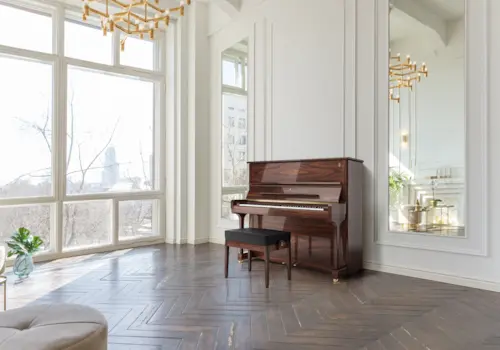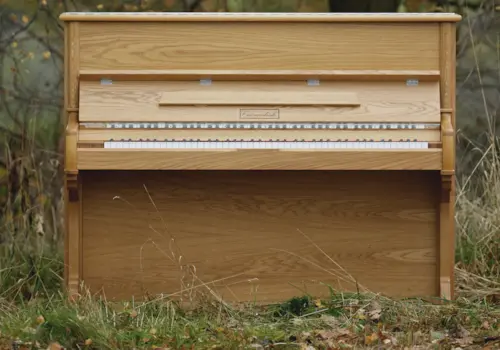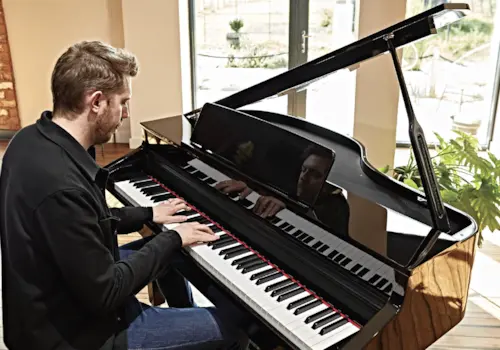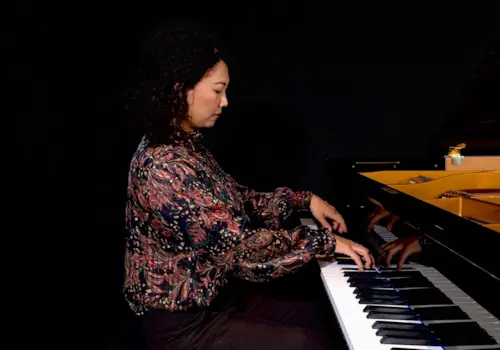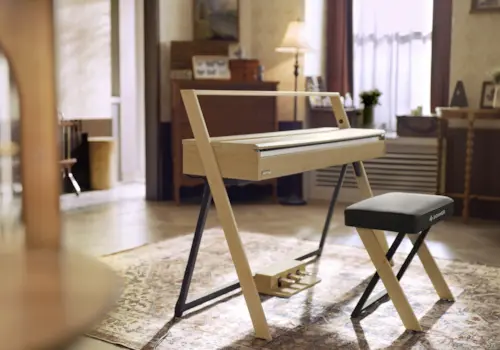13 February 2025
|
Whether you're taking a piano exam or doing an audition, here are some top tips on how to prepare for the big day
If you’re working hard on the music you love and are inspired by your teacher and others, you will probably benefit from some way of recognising your success and reassurance that you are on the right road. This is exactly what a piano exam offers.
Exams provide motivation and inspiration as you work from a carefully structured syllabus towards a definite goal. They’re a measure of personal progress and attainment against established, international benchmarks. They provide a focus for your work and an objective guide to improve your musical skills.
An exam is also a valuable performance opportunity – not forgetting that pieces played in the exam room are also wonderful concert pieces that you can play to friends, family, and perhaps the public.
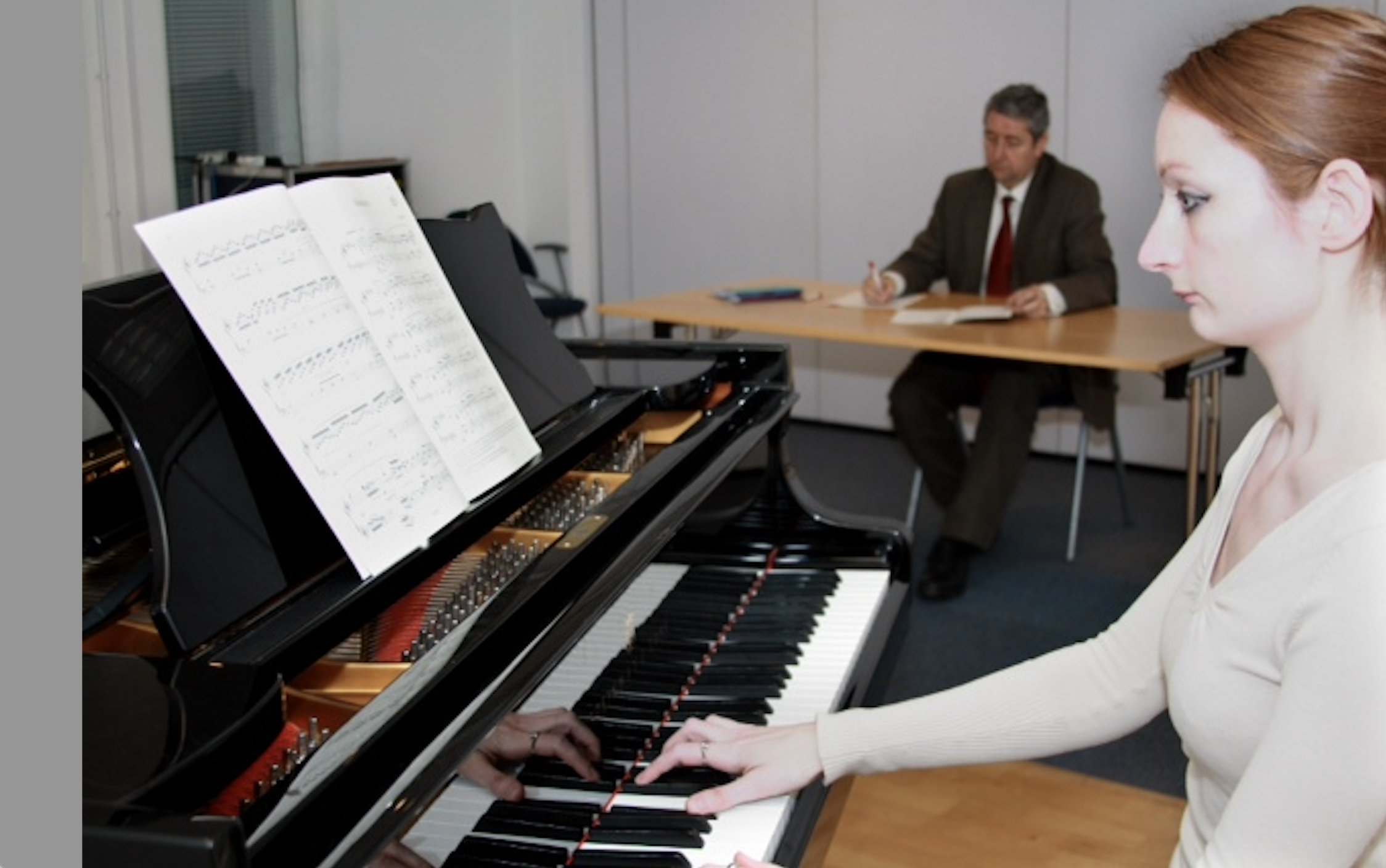
Much of what we write below can also be helpful when it comes to doing any kind of piano audition. Of course, music exams do not suit everyone and exam syllabuses are not intended to provide a complete curriculum or choice of repertoire to the exclusion of all other music. All musicians should explore a wide range of music to stimulate their interest, learn new things and broaden their experiences.
You are most likely worried about making mistakes on the day; you’re worried that the occasional wrong note here or there will lose you too many marks. Or perhaps you are worried about the other areas of the exam – the sight-reading and the scales. Whatever it is that you are nervous about, there are ways to settle your fears so that you can focus on what is most important; simply showing the examiner exactly what you can do.
So, here are 8 top tips on how to successfully prepare for an exam:
1 Be prepared
There are two types of nerves when it comes to live performances:
- Knowing your pieces well but being nervous about small mistakes
- Being under-prepared and worrying about big mistakes
The best advice we can give is to simply practise. If you can play your pieces precisely and well in practice, then you will be okay. Yes, you may make a small mistake or two, but these won’t be enough to pull your grade down by any more than a couple of marks. Even if you did have to stop mid-performance, trust your instincts. You know the piece well enough to pick it back up again very quickly. The examiner will notice this as an example of your perseverance.
2 Avoid over-practising on the day
The last thing you want to do is shatter your own confidence by over-practising, which leads to mistakes being made. Here is our advice:
- Practise through the exam pieces for no more than twice on the morning of your exam.
- Don’t touch a piano again until you are in your exam!
- If you need to, practise your hand shapes, fingering, and tempos on your knees whilst you are waiting to be called in.
Your aural part of the exam, however, is different. You can’t practise this enough. To take your fears off the performance itself, practice your aural with a friend or a parent. If you’re confident about one aspect of your exam, this will flow into the other areas of the exam. It’s beneficial all round.
Watch Graham Fitch's advice on how to prepare for your performance:
3 Remember why you are there
Whether you are doing Grade 1 or Grade 8, you are here for a reason. What is that reason? Either:
- You passed your previous exams and qualified for this one, or;
- Your teacher thinks you are more than capable of taking this grade.
The bottom line is, you earned the right to take this exam. There was a reason why your previous examiners gave you a pass, merit or distinction. There’s a reason why your teacher feels you are ready to take this exam. They believe that you are talented at playing piano and they believe you can succeed. The only person left to believe this is yourself.
Need to sharpen up your rhythm before taking your exam? Here's the perfect lesson:
4 Tell yourself that you are going to do well
Once you realise that those around you want you to succeed, it’s important to then believe in yourself that you can succeed. Making mistakes in practice can so easily knock your confidence. But we have realised that the best way to combat this is to simply tell yourself that you will do well; not that you can or you might, but that you will.
So, what can you tell yourself before your exam?
- I am going to get through this hard piece without making any big mistakes.
- I will get a distinction in this exam.
- I am going to remember everything I learnt.
You’ll be amazed at what happens when you say positive things about yourself.
5 Remember how to breathe

Here’s another practical tip for you. Nerves and anxiety tend to cause your hands (and feet) to tremble, which of course is not ideal for someone who’s about to take a piano exam! The breathing exercise above will help calm your nerves, allowing your hands to settle and focus on playing.
Here's some advice (for the beginner) on how to be seated comfortably at the piano:
6 Sing!
Not finding the breathing exercise useful? Having a little sing in the bathroom before you go into your exam might be the better option for you. Singing releases chemicals called endorphins and oxytocin around your body which help to relax you and improve your mood.
7 Try to avoid caffeine
You need to do everything you can to hit that ideal combination of being relaxed but focused. If you are a regular coffee drinker, one coffee in the morning won’t do you any harm. Just make sure that you are leaving over an hour between finishing your coffee and starting your exam. You don’t want to be too alert. If you aren’t a regular coffee drinker, leave it that way. Just stick to your normal routine.
8 Examiners are there to support you
It's very easy to slip into the habit of viewing the examiner as a negative figure – as someone who is watching your every move in the exam, waiting to spot a small mistake. It's easy to believe that it's their job to highlight your flaws and to try and take marks from you. However, the reality is this: examiners want you to do well.
Wait, they want to pass me? They want to see me do well? Of course, they do! Yes, it’s their job to be fair and to judge your performance on a number of factors. But ultimately, they get joy and pleasure out of seeing students excel. Who wouldn’t?
To summarise
So, remind yourself of these when you approach your next exam:
- Work hard and you’ll reap the rewards
- Relax on the day
- Remember why you are there
- Believe in yourself
- Remember to breathe
- Remind yourself that the examiners are on your side
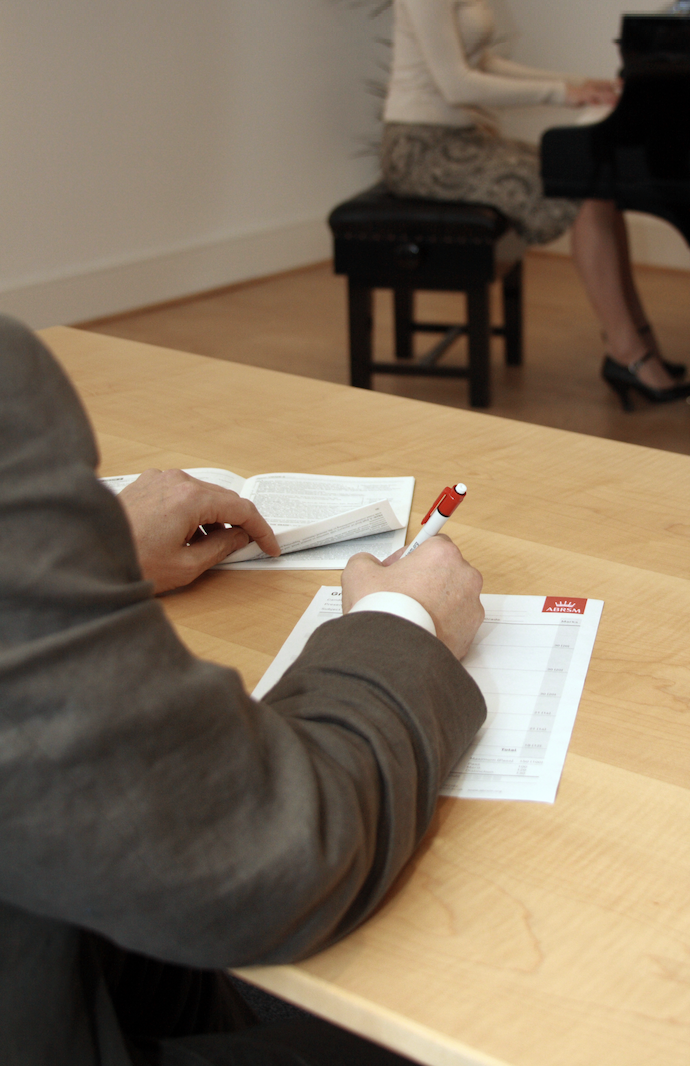
EXAM BOARDS TO DISCOVER:
London College of Music Examinations (LCM)
Finally, as a bit of light relief, Pianist contributors share their exam experiences:
‘I think I just took grades 1, 5 and 8, so they didn’t invade my life too much. I enjoyed working towards a goal though, and even if I got Distinction with each, I was always poor in certain areas (sight-reading and arpeggios spring to mind…!). I found that playing for my parents and entering music festivals helped a lot when it came to coping with nerves. I’d do them again – they really get you motivated.’
Erica Worth (Editor)
The downside is that these exams instilled in me a tendency to be terribly nervous about performing. But it felt really great when I got Distinction for Grade 8, especially as I’d got Merit for Grades 6 and 7. A nice way to measure the fact that you’re improving. And my father, having told me not to make such a big deal of it beforehand (those nerves and all…), would usually take me out to buy a record of my choice after it was over. That – plus chocolate cake! – provided something to look forward to.
Jessica Duchen (Writer)
I remember doing Grade 3 piano in a dusty old room at the rear of the United Reformed Church in the centre of Norwich. It was February, about minus two outside and colder inside! I had to warm my hands over a two-bar electric fire, only one bar of which was burning. Oh for the joys of the 1970s!!
Andrew Stewart (Writer)
Main Image: © Nationwide Music Exams

